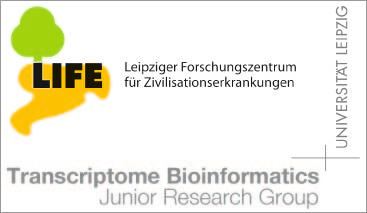Publications - Published papers
Please find below publications of our group. Currently, we list 565 papers. Some of the publications are in collaboration with the group of Sonja Prohaska and are also listed in the publication list for her individual group. Access to published papers ( ) is restricted to our local network and chosen collaborators.
If you have problems accessing electronic information, please let us know:
) is restricted to our local network and chosen collaborators.
If you have problems accessing electronic information, please let us know:
 ) is restricted to our local network and chosen collaborators.
If you have problems accessing electronic information, please let us know:
) is restricted to our local network and chosen collaborators.
If you have problems accessing electronic information, please let us know:©NOTICE: All papers are copyrighted by the authors; If you would like to use all or a portion of any paper, please contact the author.
Description of strongly heat-inducible heat shock protein 70 transcripts from Baikal endemic amphipods
Drozdova, Polina and Bedulina, Daria and Madyarova, Ekaterina and Rivarola-Duarte, Lorena and Schreiber, Stephan and Stadler, Peter F. and Luckenbach, Till and Timofeyev, Maxim
Download
Status: Published
Sci. Rep. 9: 8907
Abstract
Heat shock proteins/cognates 70 are chaperones essential for proper protein folding. This protein family comprises inducible members (Hsp70s) with expression triggered by the increased concentration of misfolded proteins due to protein-destabilizing conditions, as well as constitutively expressed cognate members (Hsc70s). Previous works on non-model amphipod species Eulimnogammarus verrucosus and Eulimnogammarus cyaneus, both endemic to Lake Baikal in Eastern Siberia, have only revealed a constitutively expressed form, expression of which was moderately further induced by protein-destabilizing conditions. Here we describe heat-inducible hsp70s in these species. Contrary to the common approach of using sequence similarity with hsp/hsc70 of a wide spectrum of organisms and some characteristic features, such as absence of introns within genes and presence of heat shock elements in their promoter areas, the present study is based on next-generation sequencing for the studied or related species followed by differential expression analysis, quantitative PCR validation and detailed investigation of the predicted polypeptide sequences. This approach allowed us to describe a novel type of hsp70 transcripts that overexpress in response to heat shock. Moreover, we propose diagnostic sequence features of this Hsp70 type for amphipods. Phylogenetic comparisons with different types of Hsp/Hsc70s allowed us to suggest that the hsp/hsc70 gene family in Amphipoda diversified into cognate and heat-inducible paralogs independently from other crustaceans. Thus, the cognate and inducible hsp70 types in distant taxa may not be recognized by sequence similarity.















